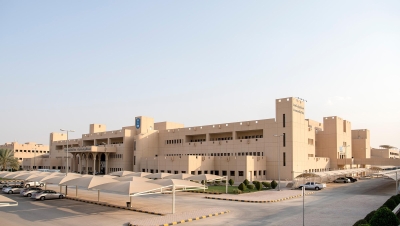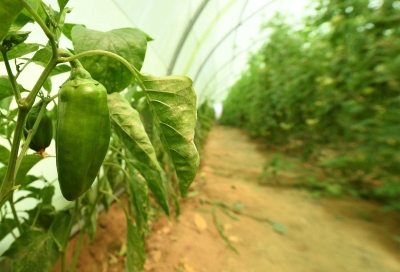


Logging in the Kingdom of Saudi Arabia involves human activities related to gathering firewood and producing charcoal, leading to the degradation of the Kingdom’s vegetation cover. This ecosystem is exposed to numerous environmental challenges, such as low rainfall, drought conditions, extreme temperature fluctuations, and high solar radiation.
Trees in Saudi Arabia
Approximately 120 tree species grow in the Kingdom, with 80 percent of them located in the southern regions. These trees contribute to the supply of wood products and other products, including honey. They also help maintain ecological balance, provide food for domesticated and wild animals, and preserve biodiversity. Additionally, these trees serve as recreational spaces and windbreaks. Their products can be used in home construction, handicrafts, or agricultural tools, in addition to medicinal, economic, and environmental uses.
Unregulated logging and overgrazing
The combination of unregulated logging, overgrazing, and urban expansion has led to the degradation of the Kingdom’s vegetation cover. Low environmental awareness, greed, and the use of modern technology, such as mechanical saws and four-wheel-drive vehicles have contributed to the expansion of logging activities and increased the magnitude of vegetation degradation.
Each year, around 120,000 ha of trees and shrubs are lost in the Kingdom. Commonly logged species include Acacia tortilis, Haloxylon persicum, and arta (Calligonum comosum). The annual loss of tree vegetation cover due to logging Acacia tortilis trees was estimated at 3,376 ha in 2002, increasing to 13,712 ha by 2023. The annual quantity of Haloxylon persicum firewood available in the Kingdom’s markets is approximately 4,623 t, while the quantity of arta firewood is estimated at 4,188 t per year.
Causes of increased logging activity
The practice of lighting fires in the desert and at home is a longstanding tradition in Saudi society. Originally driven by necessity, it has now become a form of recreation, especially given the availability of low-cost energy alternatives in a country recognized as one of the world’s largest energy producers, alongside population growth and improved living standards.
Many citizens still believe that using local firewood and charcoal for cooking and heating offers advantages that other energy sources, such as imported firewood, petroleum derivatives, gas, or electricity, do not provide. Additionally, modern technologies, like mechanical saws and four-wheel-drive vehicles, have facilitated the expansion of logging, further accelerating vegetation cover deterioration. Other contributing factors include the economic return from firewood commercialization, weak oversight, and the lack of enforcement of regulations and legislation that effectively prohibit logging.
Economic and environmental risks of logging
Logging poses significant economic and environmental risks to the Kingdom. These include reduced land productivity, both for wood and non-wood products such as honey, decreased oxygen production, essential for life, and increased air pollution by carbon and other pollutant. It also raises the risks of flash floods and floods due to soil erosion from vegetation cover loss.
The risks moreover include surface soil erosion, loss of fertility, expansion of desertification, sand encroachment, and sand and dust storms due to vegetation cover loss. Furthermore, there is a shift in the climate surrounding areas affected by the removal of trees and natural vegetation cover, as well as a decrease in shallow groundwater reserves formed from rainwater infiltration into the soil. This decline is caused by the absence of vegetation cover, which would otherwise allow rainwater to seep slowly into deeper soil layers.
Additional risks involve the loss of plant and animal biodiversity, leading to the loss of many indigenous inherited resources, which are meant to be preserved for future generations. Negative impacts are also felt in domestic tourism, affecting national parks and outdoor tourism. There is a detrimental effect on future economic development plans, an increase in rural unemployment, and a potential threat to the future of coming generations within the Kingdom.
Official efforts to halt logging
The Ministry of Environment, Water, and Agriculture, in collaboration with other entities, has developed plans and legislation to prevent the degradation of vegetation cover, ensure the sustainable development of forests and natural pastures in the Kingdom, and halt logging. These efforts also aim at preventing local firewood and charcoal sales and promoting imported alternatives to reduce the cutting of trees and shrubs and the destruction of vegetation cover and the natural environment.
Initiatives include establishing the Strategy and National Forestry Plan (2005 - 2025), issued by the Council of Ministers in 2004, and issuing the Forests and Pastures Act in 1978, which was updated in 2004 and was canceled with the issuance of the Environmental Law in 2020. One provision of this law states that “it is prohibited to harm trees and shrubs growing in grazing lands and forests, as well as to use harmful substances, of any kind, on or near these plants, or to use any other means that would weaken or kill trees, shrubs, or grasses growing in their natural environment.”
Efforts also include halting the issuance of licenses for logging, charcoal production, and transport, as well as imposing an absolute ban on exporting firewood and charcoal from the Kingdom. Additionally, guards have been appointed in forest and grazing areas across different regions, and an agreement has been made with a specialized security company.
Moreover, the Council of Ministers Decision No. 129, dated July 29, 2002, exempts imported firewood and charcoal from customs duties. Circulars and letters from the Ministry of Interior have also been issued to regional governors stating that vehicles carrying firewood are only allowed with official permits. They also banned local firewood from being sold in markets and called on traders to import firewood and charcoal through the Council of Saudi Chambers. Citizens and residents have been advised to use imported firewood and charcoal.
Logging prohibitions in the Environmental Law
The Environmental Law, enacted by Royal Decree on July 10, 2020, and confirmed by the Council of Ministers on July 7, 2020, outlines specific protections for vegetation cover, dedicating an entire section to this matter with multiple articles. The law states that engaging in any activity or operation on the vegetation cover lands without a permit or license is prohibited. The law also states that engaging in any activity or operation on lands within urban limits that contain vegetation cover without a permit or license is prohibited.
The Environmental Law also prohibits any action that causes harm to the vegetation cover lands or disrupts their natural balance, particularly: cutting down, uprooting, or transporting trees, shrubs, herbs, or plants; removing their bark, leaves, or any part thereof; transferring or dredging their soil; or trading therein. Additionally, producing, transporting, storing, selling, or promoting local firewood or coal without a permit or license is prohibited.
The Executive Regulation for Logging
The Executive Regulation for Logging considers the following activities as violations of the provisions of the law: cutting down, uprooting, transporting, or harming trees, shrubs, herbs, or plants in vegetation cover lands; stripping bark, leaves, or any part of them; transporting their soil or drainage or trading in them without a prior license or permit.
The regulation also prohibits the use of local firewood and charcoal in commercial activities such as restaurants, kitchens, and bakeries. Logging without a permit or license is considered a violation of the provisions of the law and the Executive Regulation.
In terms of penalties, the regulations state that cutting down, uprooting, and transporting trees in vegetation cover lands; stripping bark, leaves, or any part of them; transporting their soil or drainage or trading in them without a prior license or permit is punishable by imprisonment for a period no more than ten years and a fine of no more than SAR30 million or one of these penalties.
If it is found that environmental damage caused by the violation necessitates the need for rehabilitation, the National Center for Vegetation Cover and Combating Desertification (NCVC) will assess the damage and calculate compensation in each case, according to the cost of rehabilitation and restoring the environmental condition to its prior state as much as possible.
The violator is required to remove the impact of the violation and pay the compensation specified by the NCVC within sixty days of notification.
Anti-logging campaigns
The Ministry of Environment, Water, and Agriculture conducts inspection campaigns and field visits to prevent the degradation of vegetation cover, promote sustainable development of natural pastures and forests, and penalize violators by enforcing the executive regulations.
These campaigns aim to foster the growth of natural vegetation, reduce desertification effects, restore biodiversity in natural habitats, rehabilitate degraded vegetation areas, and encourage positive behaviors to preserve the Kingdom’s environment. Additionally, these efforts aim to protect the environment and improve the quality of life by planting trees and maintaining them across various regions to promote vegetation growth and combat desertification.
The campaigns also encourage commercial establishments and restaurants to use alternatives, such as imported firewood and charcoal, while reporting violations to protect vegetation and avoid penalties.
Special Forces for Environmental Security, and efforts to prevent logging
In line with protecting vegetation cover lands, preventing logging, and preserving the environment, the Special Forces for Environmental Security, established under the Ministry of Interior in 2019, began their duties the following year. They are tasked with enforcing environmental regulations in coordination with relevant environmental and security authorities. The forces operate according to a strategy that aims to cover various environmental zones in the Kingdom, including royal and natural reserves, forests, pastures, parks, important bird habitats, coastal areas, urban zones, and suburban areas.
Field efforts to limit logging
The Ministry of Environment, Water, and Agriculture has deployed patrols to protect and monitor forests and parks, using drones to detect and track vegetation violations, apprehend violators, and take appropriate measures in accordance with the Environmental Law's Executive Regulations.
The Ministry works to protect vegetation sites, monitor them, rehabilitate degraded areas, address violations, combat logging, and oversee the management and exploitation of rangelands, forests, and national parks.
Related quizzes

